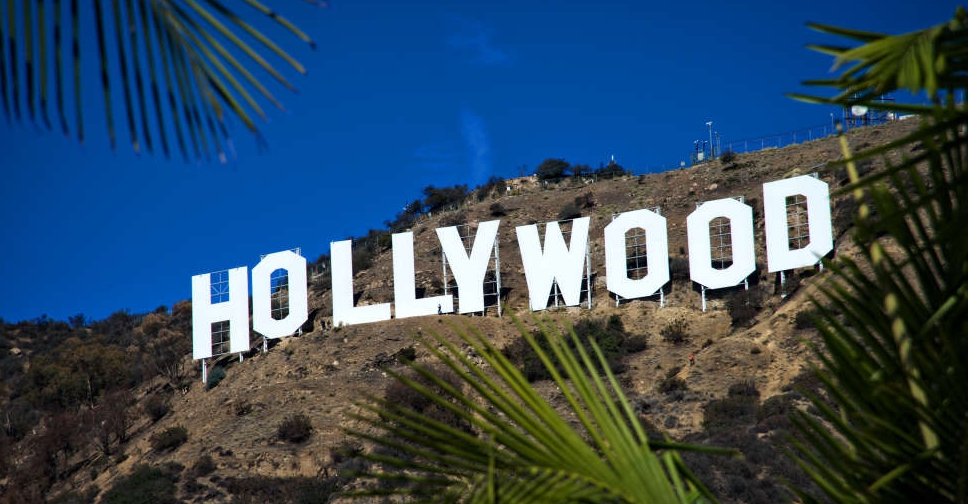
Hollywood film and television writers will go on strike Tuesday, throwing Hollywood into turmoil as the entertainment business grapples with seismic changes triggered by the global streaming TV boom.
The Writers Guild of America (WGA) called its first work stoppage in 15 years after failing to reach an agreement for higher pay from studios such as Walt Disney and Netflix.
"The companies' behavior has created a gig economy inside a union workforce, and their immovable stance in this negotiation has betrayed a commitment to further devaluing the profession of writing," the WGA said in a statement on its website.
The Alliance of Motion Picture and Television Producers, which represents Walt Disney, Netflix and others, said late on Monday it had offered "generous increases in compensation" in negotiations with the WGA.
The 11,500 members of the WGA had given union leaders the power to call a strike as early as Tuesday, after their current contract expires, as the entertainment industry faces a tough economic backdrop. Conglomerates are under pressure from Wall Street to make their streaming services profitable after investing billions of dollars on content to attract subscribers.
The last WGA strike, in 2007 and 2008, lasted 100 days. The action cost the California economy an estimated $2.1 billion as productions shut down and out-of-work writers, actors and producers cut back spending.
The negotiations to avert a strike took place against a difficult economic backdrop for the industry. Entertainment conglomerates are under pressure from Wall Street to make their streaming services profitable after investing billions of dollars on content to attract subscribers.
They also are contending with declining television ad revenue, as traditional TV audiences shrink and advertisers go elsewhere. On top of all that, the threat of a recession in the world's biggest economy also looms.
Writers say they have suffered financially during the streaming TV boom, in part due to shorter seasons and smaller residual payments. They are seeking pay increases and changes to industry practices they say force them to work more for less money.
Half of TV series writers now work at minimum salary levels, compared with one-third in the 2013-14 season, according to Guild statistics. Median pay at the higher writer/producer level has fallen 4 per cent over the last decade.
"The way that it's looking now is that there won't be a middle class in Hollywood," said Caroline Renard, a Guild liaison and writer whose credits include the Disney Channel's Secrets of Sulphur Springs.
Artificial intelligence is another issue at the bargaining table. The WGA wants safeguards to prevent studios from using AI to generate new scripts from writers' previous work. Writers also want to ensure they are not asked to rewrite draft scripts created by AI.
If a strike is called, late-night shows such as The Tonight Show with Jimmy Fallon, Last Week Tonight with John Oliver and Saturday Night Live which use teams of writers to craft topical jokes, are expected to immediately stop production.
That means new episodes will not be available during their traditional TV time slots or on the streaming services that make them available the next day.
Soap operas and other daytime shows such as The View will likely be disrupted. News programs would not be interrupted because those writers are members of a different union.
Further ahead, the strike could lead to a delay of the autumn TV season. Writing for these shows normally starts in May or June. If the work stoppage becomes protracted, the networks will increasingly fill their programming lineups with unscripted reality shows, news magazines and reruns.
Netflix may be insulated from any immediate impact because of its global focus and access to production facilities outside of the US.
Studios do not want another disruption after the COVID-19 pandemic halted production worldwide for months but budgets are tight, and a new era of fiscal austerity has dawned in Hollywood, with studios laying off thousands of employees and curtailing spending on content.




 Kendrick Lamar, Post Malone lead American Music Awards nominations
Kendrick Lamar, Post Malone lead American Music Awards nominations
 Sharjah Children's Reading Festival brings new chapter of surprises
Sharjah Children's Reading Festival brings new chapter of surprises
 Metallica to perform at Abu Dhabi Grand Prix
Metallica to perform at Abu Dhabi Grand Prix
 Hatta's 'largest' art installation focuses on reflection
Hatta's 'largest' art installation focuses on reflection
 Global Village welcomes music sensation Atif Aslam
Global Village welcomes music sensation Atif Aslam






